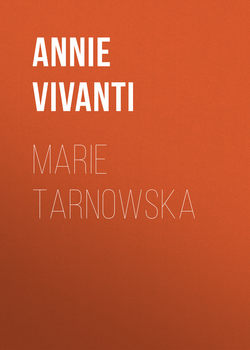Читать книгу Marie Tarnowska - Annie Vivanti - Страница 9
VI
ОглавлениеSoon after that my thoughts are adrift, my recollections grow confused. I see my mother with my baby in her arms, and myself in traveling attire, with my arms twined about them, weeping, despairing, refusing to leave them and set out on a journey of Vassili's planning. But Vassili grows impatient. Vassili grows angry. He is tired of playing the papa, tired of seeing me no longer a little “firebrand,” but calm as a young Madonna in the beatific purity of motherhood.
Vassili has taken it into his head that he wants to study singing. He has made up his mind to go to Italy, to Milan, to study scales and exercises; and I must go with him.
“But our baby, Vassili, our little Tioka! We must take our baby with us!”
No. Vassili does not want babies. He does not want to be bothered or hindered. “We are carting about eight trunks as it is!” he says, cynically.
And so we start for Italy—Italy, the yearned-for goal of all my girlish dreams.
At Milan Vassili sings. I seem always to see him with his handsome mouth open, singing scales and arpeggios. But a slow poison is creeping through my blood and I fall ill, ill with typhoid fever.
Again my thoughts go adrift and my recollections are confused. They dance in grotesque and hideous visions through my brain. I see livid hallucinated faces peering at me, towers and mountains tottering above me, undefined horrors all about me, and in the midst of them all I see Vassili—singing! He sings scales and arpeggios with his rounded open mouth. Now I can see a white spider—no, two white spiders—running about on a scarlet coverlet.... They are my hands. They frighten me. And Vassili is singing.
“Vassili, why are you singing? Don't sing! Don't sing!”
“No, darling, I am not singing. You only imagine it. You are ill; you are feverish. Calm yourself.”
········
“Vassili, where is my baby?”
“At home in Kieff, with grandmama. Dear grandmama is taking such good care of him!”
“And why are we not with him? Where are we?”
“We are at Pegli, darling.”
“Why? Why? Where is Pegli? What are we doing at Pegli?”
“Come now, dearest; you know—we came to Italy because I wanted to sing—”
“Ah, you see! You wanted to sing! Why do you want to sing when the baby is crying? The baby is so helpless. Why did you take me away from him? You sing, you sing so loud that I cannot hear my baby crying. Don't sing!”
But even as I speak I see that Vassili has his round mouth open again and he sings and sings, and the white spiders run over the scarlet counterpane and come close to my face—and the white spiders are my hands. I shriek and shriek to have them taken away. But the baby is crying and Vassili is singing and no one hears me.
········
Then I drop down to the bottom of a deep well. I feel myself falling, falling, until with a great shock I touch the bottom. And there I lie motionless in the dark.
········
When I open my eyes there is a great deal of light; the windows are open, the sun is pouring in; I know that outside there is the sea. Beside my bed sits a doctor with a gray beard, feeling my pulse. Under the light intermittent pressure of his fingers my pulse seems to grow quieter; I can see the doctor's head giving little nods as he counts the beats.
“Sixty-five. Excellent, excellent!” The doctor pats my hand gently and encouragingly. “That is first-rate. We are quite well again.”
Then I hear some one weeping softly, and I know it is my mother. I try to turn and smile at her, but my head will not move. It is like a ball of lead sunk in the pillow. Immediately afterwards—or have years passed?—I hear some one say: “Here is the Professor!” And again the same doctor with the gray beard comes in and smiles at me.
Before sitting down beside the bed he turns to my mother: “Has she not yet asked about her child?” My mother shakes her head and presses her handkerchief to her eyes. Then the doctor sits down beside my bed and strokes my forehead and speaks to me.
He speaks about a baby. He repeats a name over and over again—perhaps it is Tioka. Tioka? Who is Tioka? I watch his beard moving up and down, and do not know what he is saying. The ball of lead on my pillow rolls from side to side with a dull and heavy ache.
My mother weeps bitterly: “Oh, doctor, do not let her die!”
The white spiders are there again, running over the coverlet. And I fall once more, down, down, down, to the bottom of the well.
